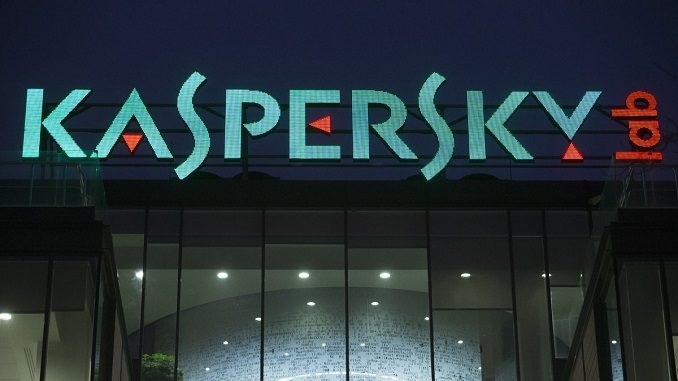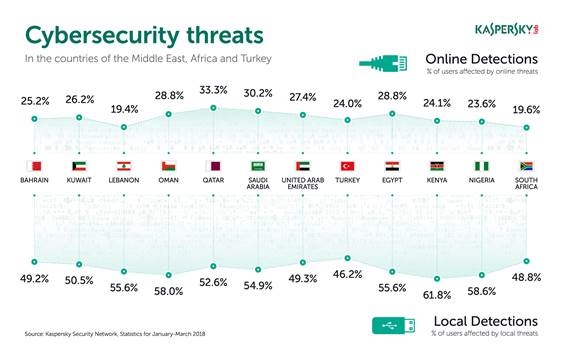On April 11-14 Kaspersky Lab held its annual Cyber Security Weekend for the Middle East, Turkey and Africa (META) in Istanbul, Turkey, to explore the evolution of the threat landscape both – globally and in the regions – and to find out which approaches businesses need to take in order to survive. Kaspersky Lab’s Global Research & Analysis Team (GReAT) experts and invited experts discussed various topics, including IoT security, blockchain technology and the rise of targeted attacks as well as threats aimed at medical infrastructure.
During the event, statistics from the Kaspersky Security Network for the first quarter of 2018 were revealed and showed an overall increase in local threats infections (malware spread in local networks, by USBs, CDs, DVDs) with Kenya taking the first place with 61.8% of its users infected, followed by 58.6% in Nigeria, 50.8% in Oman, and 55.6% in both Egypt and Lebanon. Turkey reported the lowest number of local threat infections with 46.2%.
The statistics for the same period of time also showed a noticeable overall increase in web threats with 30.2% of users affects by malware in Saudi Arabia, 28.8% in both Egypt and Oman followed by 27.4% in the UAE. On the other hand, South Africa had the lowest number of affected users in the META region (48.8% for local and 19.6% for web threats).
“We have seen an 8.5% increase in ransomware attacks in the META region in Q1 of 2018 compared to Q1 of last year, this number is not surprising, judging by the infamous success of major ransomware attacks last year. We do expect such attacks to grow and evolve in complexity and sophistication. This highlights the importance of proper security solutions backed with continuous security training to raise awareness on the dangers of such attacks,” said Mohamad Amin Hasbini, Senior Security Researcher, Global Research & Analysis Team, Kaspersky Lab.
Future technologies were also in focus of Cyber Security Weekend this year. A panel of experts from Kaspersky Lab and specially invited guests from Turkey and UAE spoke about how the blockchain affects the way people live and work nowadays. Kozan Demircan, Chief Digital Officer; Lecturer at Bilgi and Bahçeşehir University said: “I’m honoured to take part in this event and talk about blockchain. It’s important to constantly educate people on the uses of this technology as I believe it is yet another step towards a brighter more efficient future. Cryptocurrencies and blockchain promise new and disruptive business models.
A less known fact but they also rely on internet of things and cyberattacks using IoT devices quadrupled in the last year. Blockchain is a very effective way to secure IoT. Therefore, salute Kaspersky Lab for their efforts in studying this technology and assessing its cyber risks and also bringing it closer to the masses.” The discussion also touched on Kaspersky Lab’s announcement about the Polys voting system which is based around blockchain technology.
With organisations facing a wide range of cyberthreats that come from the outside as well as from the inside, they should have a holistic approach to cybersecurity that unites an effective IT security solution, employee education and security policies understood and followed by employees. Kaspersky Lab’s recently launched Threat Management and Defense gives businesses the opportunity to adopt a strategic approach to detecting complex attacks across the corporate IT infrastructure and successfully gain control and visibility of their security environment by mitigating risk in today’s digital world.












